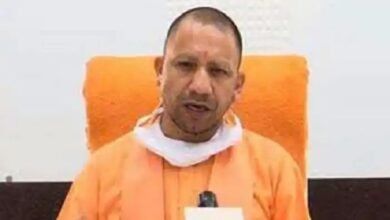[ad_1]
Upholding the constitutional validity of the Centre’s August 2019 decision to abrogate Article 370 of the Constitution that granted Jammu and Kashmir special status, the Supreme Court on Monday said although Maharaja Hari Singh, the last ruler of the erstwhile princely state, issued a proclamation that he would retain his sovereignty his successor Karan Singh issued another proclamation that the Constitution of India would prevail over all other laws in the state.
In an interview, Karan Singh, 92, expresses his thoughts about the judgment, Justice S K Kaul’s suggestion of a truth and reconciliation committee to look into alleged human rights violations by both state and non-state actors in J&K, and if this will signal an end to separatist politics.
Your first thoughts on the Supreme Court judgment?
I welcome the judgment. Let me say I am talking in my personal capacity and not on behalf of the Congress. I want to make that very clear. The party may have its views and statements. I welcome it because there was an air of uncertainty that was still hovering around as to whether it was legal or not and several things were on hold psychologically, politically, and economically. Now, it is a closure as it were to this particular controversy. And therefore, I think it should be welcomed. I am aware that there will be sections in the state that will not be happy with the judgment. My sincere advice to them is that they should accept the reality and move on and turn their energies towards elections that are now due and not unnecessarily again … If you tell the youth of the state that we will get you this and we will get you that, you can’t put back Article 370 now. There is no mantra in which you can put back 370. So you have to accept that and move on.
The elections are a very good idea. I have been calling for that for many years. And the revival of statehood I have been demanding. We should have our statehood before elections. Because if you have elections, they should be for a full-fledged state. Why should we have elections for a Union Territory? There is one view that elections ke baad denge. That is not good enough. We have to have statehood first and then elections for a full-fledged state.
What is the way forward to heal the wounds after years of turmoil?
Justice (S K) Kaul has suggested a truth and reconciliation committee on the lines of the South African situation. The point is that if we can get that sort of credibility for a commission, then there is nothing like it. Whether we can get it or not, the wounds are very deep. There is a lot of visceral antipathy built into the situation. So, it remains to be seen but the idea is an excellent one.
On Article 370, the court said Jammu and Kashmir does not have “internal sovereignty” that is distinguishable from the powers and privileges enjoyed by other states in the country and Article 370 was a feature of asymmetric federalism and not sovereignty. So were we sustaining a fiction all these years?
I don’t want to comment on that. It was very much there. It was very much part of the situation. It was eroded, 370 meant autonomy. The autonomy of the state was being eroded steadily ever since the state Constitution and after that all the Presidential orders … then the 1964 major changes …That all I have seen. I have been a party to that, I was a witness to that.
The court said the state of Jammu and Kashmir does not retain any element of sovereignty after the execution of the Instrument of Accession (IoA) and the issuance of the proclamation by you dated 25 November 1949 by which the Constitution of India was adopted.
They mentioned both important documents. They were reading both together. My father’s Instrument of Accession and my proclamation.
Does this signal an end to separatist politics?
Well, hopefully. Although there will always be people who will be separatists, even in places that were always part of India, like Nagaland. Separatism has come up in many parts of India from time to time. You can’t say it will finish off separatist politics but it will weaken it. People will realise, the youth particularly will realise, that there is no point in hitting your head against a wall. It is better to get on, try and see how we can get better jobs, better employment opportunities and a better future for ourselves.
What is your message to the political parties of J&K?
I do not see it as appropriate for me to give them a message. They are all very experienced people and they are all very good personal friends. But I would reiterate that to my mind it is unrealistic now to continue to oppose the abrogation. You can do it if you want to do it but it is unrealistic..it will not go anywhere.
Has anything changed on the ground since August 2019?
Yes, it has changed to the extent that there are no more fatwas, there are no more bandh calls every month and stone pelting has gone. So, things have changed. Law and order generally, there may have been terrorist attacks from time to time it may continue to happen … That may come to an end. Otherwise, there has been calm. Kashmir has had a marvellous tourist season this year and last year. Lakhs and lakhs of tourists have come in. They are making up for some of the income after two to three years of shutdown. In the Kashmir Valley, tourism plays a very important role … the houseboats, the shikharas, taxi owners … that has been a good thing. Some good new institutions have been set up, IIM and IIT and so on. So, there has been some positivity.
Coming back to the court’s observation that Jammu and Kashmir does not have “internal sovereignty” distinguishable from the powers and privileges enjoyed by other states in the country…
I don’t really want to comment. It is a highly technical matter, the court must have applied its mind before it said that. The difference was that while J&K had acceded … My father signed the same instrument that all the other rulers signed. It did not then get integrated in the sense that Sardar Patel integrated the others. So, it always retained a measure of autonomy. Whether you can call that sovereignty or not, I don’t know..that is a technical matter. But that now has also gone forever.
Is all that history now?
Of course, it has all gone now. Everything goes, and everything changes. Dinayaaminyow Sayam Pratah, Shishiravasantow Punarayata, Kalah Kreedati Gachchtyayuh, Tadapi Na Munchathyasavayuh. How beautifully it has been put. Because everything changes. The seasons come and go. I remember the rule of Maharaja Hari Singh which was a very progressive rule. Then I remember Sheikh Abdullah’s dominance. Then after that Bakshi Mohammad’s government for 10 years, then (Ghulam Mohammed) Sadiq sahab. The whole panoply, the whole history is unfolding before my eyes. I can’t even begin to talk about it. It is so complex. We have to go from where we are now. Let me say in the end, we have to look at this as a new chapter and go forward … let’s not continue to look into negativities.
It is an emotional moment for you.
It is not a negative emotion, anything connected with the state has an emotional impact on me. Here I would say the impact is one of some kind of intellectual stability.
The Congress is often at the receiving end of attacks from the BJP, with leaders calling the actions in the immediate years after Independence a “Nehruvian blunder”.
I don’t want to go into a long historical thing. That is too complicated. Whoever acted, acted in what they considered to be the national interest …That is all I want to say. There are so many different ways of reading history … different historians will have their views.
[ad_2]





